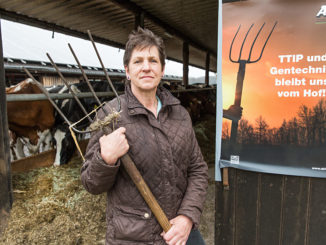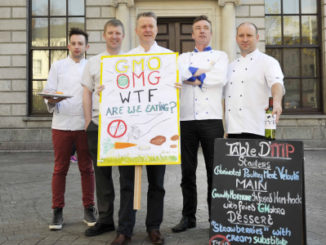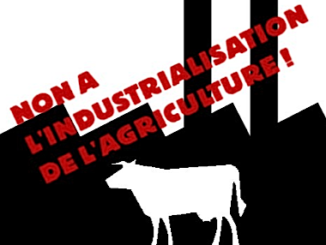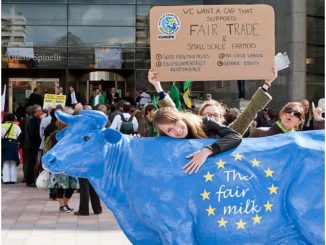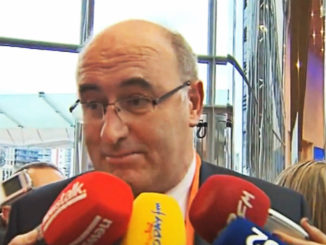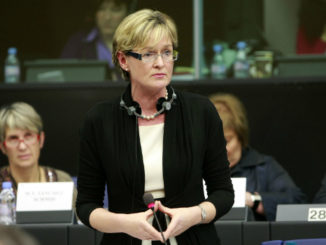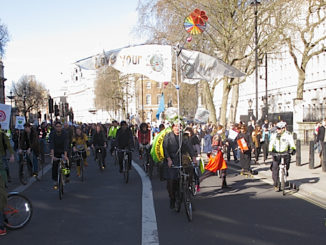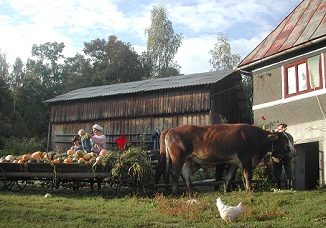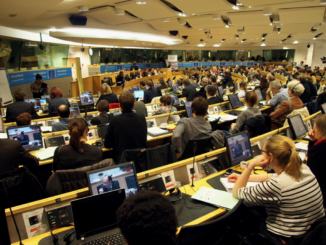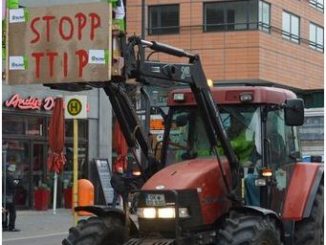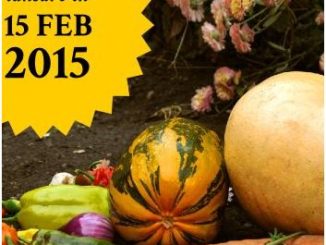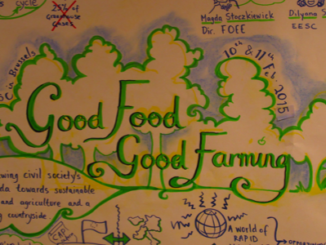By Laetitia Nourry, Eco Ruralis intern on Food Chains Campaign 30 years after its setting up, the milk quota system is coming to its end. Europe is returning to unlimited production of milk where the benefits go to industrial farming. Another stab for the slowly disappearing peasant farmer. Milk quotas were set up in 1984 by the Common Agricultural Policy, to regulate the supply and demand and avoid prices collapse. So why lift them now? The reason is for economic. As milk consumption is increasing, especially in Asia (the demand of milk should double by 2022), the European Union definitely wants to keep its first place as milk exporter to the world. To reach this goal, one solution proposed by the EU leaders says that “farmers should be more aware of the market signal“. In other words, produce more milk, again and again, at the cheapest price. Hyper-production, exports, economic growth…but what is the price ? The end of quotas will indeed enrich big producers. Industrial farms will be able to produce milk in impressive […]



